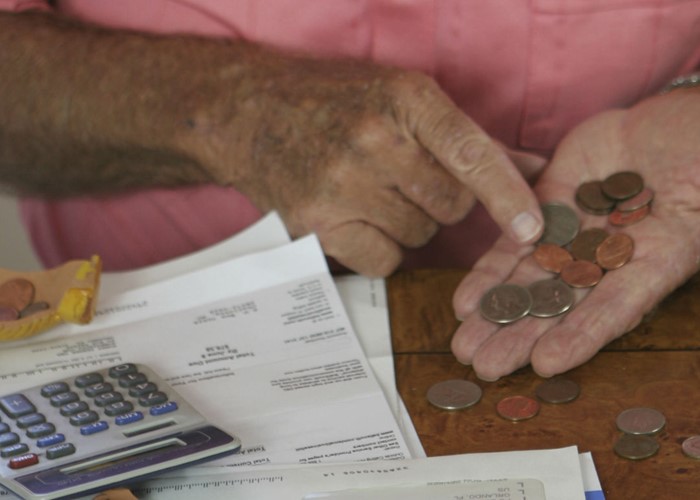FCA warns on secondary annuity market risks

Many pensioners could run out of cash unless proper safeguards are put in place, watchdog says.
The new secondary annuity market that is set to launch next April poses significant risks to pensioners, the Financial Conduct Authority (FCA) has warned.
An annuity is a product you can buy with your pension savings that generates a guaranteed income for the rest of your life. The new secondary annuity market will allow pensioners to sell their retirement income for a lump sum.
Out of the five million people thought to have an annuity, it’s estimated some 300,000 will cash them in when the market is launched.
But the FCA has warned there is a 'significant risk of poor outcomes’ for pensioners exchanging their annuities and that some may be particularly vulnerable.
The watchdog is worried pensioners will struggle to calculate what they should get for their annuity, become vulnerable to scams and may be put under pressure to sell in order to settle debts.
Safeguards
With this in mind the FCA has proposed a set of safeguards aimed at protecting pensioners that choose to cash in their annuity as well as regulate the firms wanting to buy the annuity income.
These include:
- Sellers will be required to seek financial advice for annuities worth over a certain value
- Sellers should be made aware of any charges and costs they may have to pay for selling their annuity and the value of it in pounds and pence
- Buyers and brokers will have to present their offer alongside the ‘replacement cost’ of the annuity income if it were to be bought new on the open market to help sellers judge the value of their annuity
- Brokers must set out charges up front and agree them with the seller, rather than being paid by commission
- Firms will have to give sellers specific risk warnings of cashing in their annuity early in the selling process and recommend they seek financial advice or guidance from Pension Wise, which will be expanded for this purpose
- Annuity buyers must not to sell alternative products to sellers during the process
- Buyers should recommend sellers shop around to ensure they are getting the best value when selling their annuity income
- Annuity providers will only be able to recover reasonable costs when charging on annuity sales
- Consent will have to be gained by buyers and brokers from ‘contingent beneficiaries’ i.e. anyone else who would benefit from the annuity, like a spouse, before it’s sold
- Annuity sales will fall within the scope of the Financial Ombudsman Service and the Financial Services Compensation Scheme
Many have welcomed the safeguards.
Tom McPhail, head of retirement policy at Hargreaves Lansdown, said: “This is a complex market to create from scratch, however we know that many annuity holders will be interested in trading in their income for a lump sum.
“The FCA has come up with a good package of measures to try and protect investors, while also giving them the freedom to manage their own money.”
But the Association of British Insurers (ABI) has warned there were still many outstanding issues to work through in a limited timeframe including what ‘appropriate advice’ will look like.
Why would you want to sell an annuity?
The Government is allowing people to cash in on their annuities as an extension of its pension freedom reforms launched in April 2015.
Read: Pension freedoms: all you need to know for some more information.
These freedoms mean pension savers aged 55 or over can now essentially do whatever they like with the money they’ve built up over the years.
In the past, you could take a 25% lump sum tax-free and then in most cases have to buy an annuity, which would provide a lifelong income.
However, the new rules didn’t cater to those that had already bought an annuity. In recent years annuity rates have plunged, which means many are locked into poor deals.
Currently selling an annuity will land you with a pretty hefty tax bill of between 55% and 70%, which makes it impractical for most people. But from April 2017, those that sell their annuity for a lump sum will only have to pay tax at their marginal rate for Income Tax, which will be 20%, 40% or 45%.
That said the Treasury is still expected to make £960 million over the first two years of the scheme launching.
Those that sell their annuity will be able to do what they like with their cash but may choose to invest it into a flexible drawdown scheme or buy another more suitable annuity product at a better rate.
Read these next:
The Basic State Pension and new flat-rate State Pension explained
Pensions vs ISAs vs property: the best way to save retirement
Over half of loveMONEY readers ‘worried’ or ‘terrified’ about pension prospects
Comments
Be the first to comment
Do you want to comment on this article? You need to be signed in for this feature